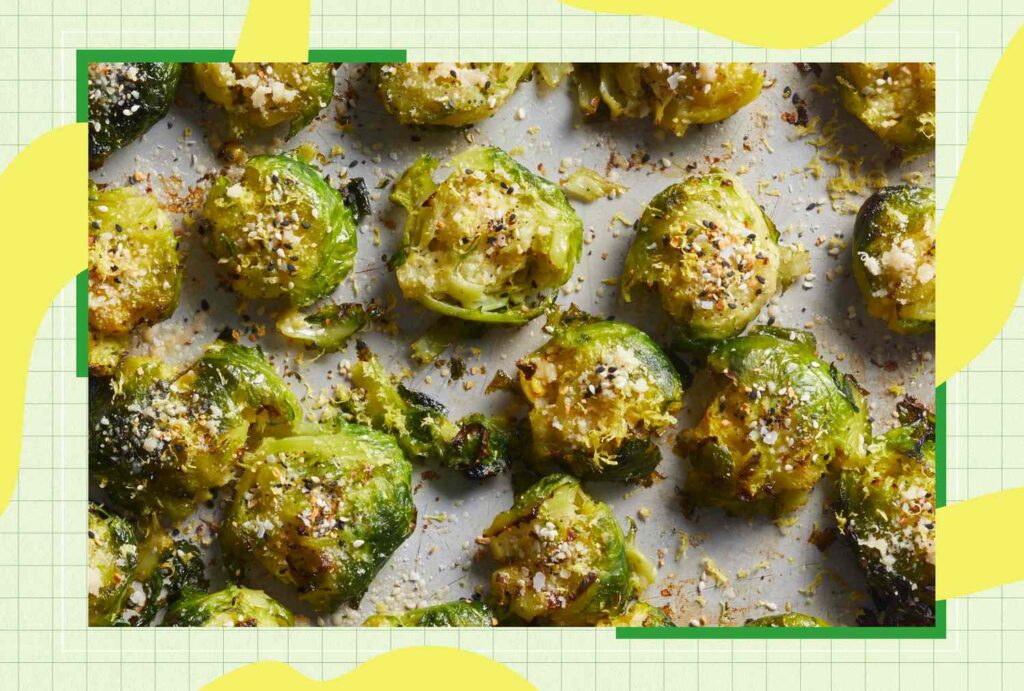- Most adults don’t get enough fiber—boost intake with fiber-rich vegetables.
- Veggies like peas, artichokes, and broccoli help relieve constipation naturally.
- Pair fiber-rich foods with water and exercise to promote regular bowel movements.
If you’ve ever experienced constipation—and all the unpleasant stopped-up symptoms that come with it—you’re not alone. Nearly 16 out of 100 adults in the United States have symptoms of constipation, which is defined as going No. 2 fewer than three times per week. For many people, turning dry, hard and lumpy stools that are difficult to pass into smooth, well-formed logs that come out easily often requires making changes to the diet.
A diet low in fiber is one of the main factors that can raise your risk of constipation. In fact, over 90% of women and 97% of men fall short of the daily fiber recommendation. On average, males and females should aim to gradually increase their dietary fiber intake to 25 to 38 grams per day. Thankfully, this goal can be met by incorporating a variety of fiber-rich vegetables into your weekly meal preparations. Below are the five best vegetables to help combat constipation and support regularity.
1. Green Peas
Tiny but mighty green peas belong to the legume family and are known for their ability to get the digestive tract back on track. Enclosed in a smooth fibrous pod, the inner spherical seeds of green peas contain a remarkable amount of bowel-stimulating dietary fiber. One cup of cooked green peas contains 9 grams of dietary fiber (32% of the Daily Value).
The dietary fiber in green peas is present in two forms: insoluble and soluble. The soluble fiber acts as a prebiotic that feeds the beneficial bacteria in the gut that improve digestive health. Insoluble fiber increases stool bulk, water absorption and intestinal regulation to aid in the passage of stool.
2. Artichokes
Rough on the outside and tender on the inside, artichokes are not only revered as culinary delicacies, but they can also help get your digestion moving. One medium artichoke contains 7 grams of fiber (25% DV).
This thistle-like plant is characterized by rows of thorn-tipped leaves that protect an inner edible flesh (known as the artichoke heart) that’s rich in a type of prebiotic fiber called inulin. Research has shown that in addition to stimulating the growth of good bacteria and decreasing the abundance of harmful bacteria in the gut, inulin also helps you poop more often.
3. Broccoli
With its tree-like structure and flavorful florets, broccoli is a cruciferous vegetable packed with dietary fiber and powerful plant compounds. Just 1 cup of cooked broccoli has 5 grams of fiber (18% DV).
One digestion-friendly suggestion? Chop broccoli first. When you chop broccoli into tiny pieces and allow it to rest for 90 minutes before cooking, you activate a potent plant substance known as sulforaphane. Sulforaphane plays a pivotal role in preventing the overgrowth of harmful bacteria in the gut and protecting the small intestines from oxidative stress linked to constipation. In fact, one small study found that the daily intake of sulforaphane-rich broccoli sprouts helped people become more regular. To get your bowels moving, consider adding broccoli to your meals.
4. Collard Greens
Collard greens are another cruciferous vegetable touted for their high fiber content and digestive perks. One cup of cooked collard greens contains an impressive 8 grams of dietary fiber (29% DV). Similar to broccoli, these dark leafy greens also contain sulforaphane so eating more collards may help lessen the symptoms of constipation. To add more collard greens to your diet, you can serve collard greens as a side.
5. Brussels Sprouts
Along with broccoli and collards, Brussels sprouts are a member of the cruciferous family and boast a gut-friendly nutrient profile. These miniature cabbage-like vegetables contain 4 grams of fiber (14% DV) for every cup, cooked.
The dietary fiber in vegetables like Brussels sprouts helps to soften stools, making it easier and more comfortable to poop. In relation to other cruciferous vegetables, Brussels sprouts can also help boost the number of beneficial microbes in the gut that improve digestion. One of the simplest ways to include more Brussels sprouts in your diet is to roast them.
Other Ways to Relieve Constipation
Beyond consuming adequate amounts of fiber-rich vegetables, you can also score relief from constipation by:
- Eating high-fiber fruits like apples, prunes, pears, kiwis and citrus.
- Drinking plenty of fluids such as water, clear soups and vegetable or fruit juices without added sugar. Fluid works hand-in-hand with fiber to soften stools, making them easier to pass.
- Limiting fast food and highly processed foods, which typically lack fiber.
- Exercising regularly to keep your bowels moving.
Our Expert Take
To ease constipation and promote regular bowel movements, eat an array of vegetables rich in fiber and plant compounds that support gut health. Five of the best vegetables that meet these criteria include green peas, artichokes, broccoli, collard greens and Brussels sprouts. However, the combined efforts of a fiber-rich diet, adequate water intake and exercise are all needed to help you go No. 2.

